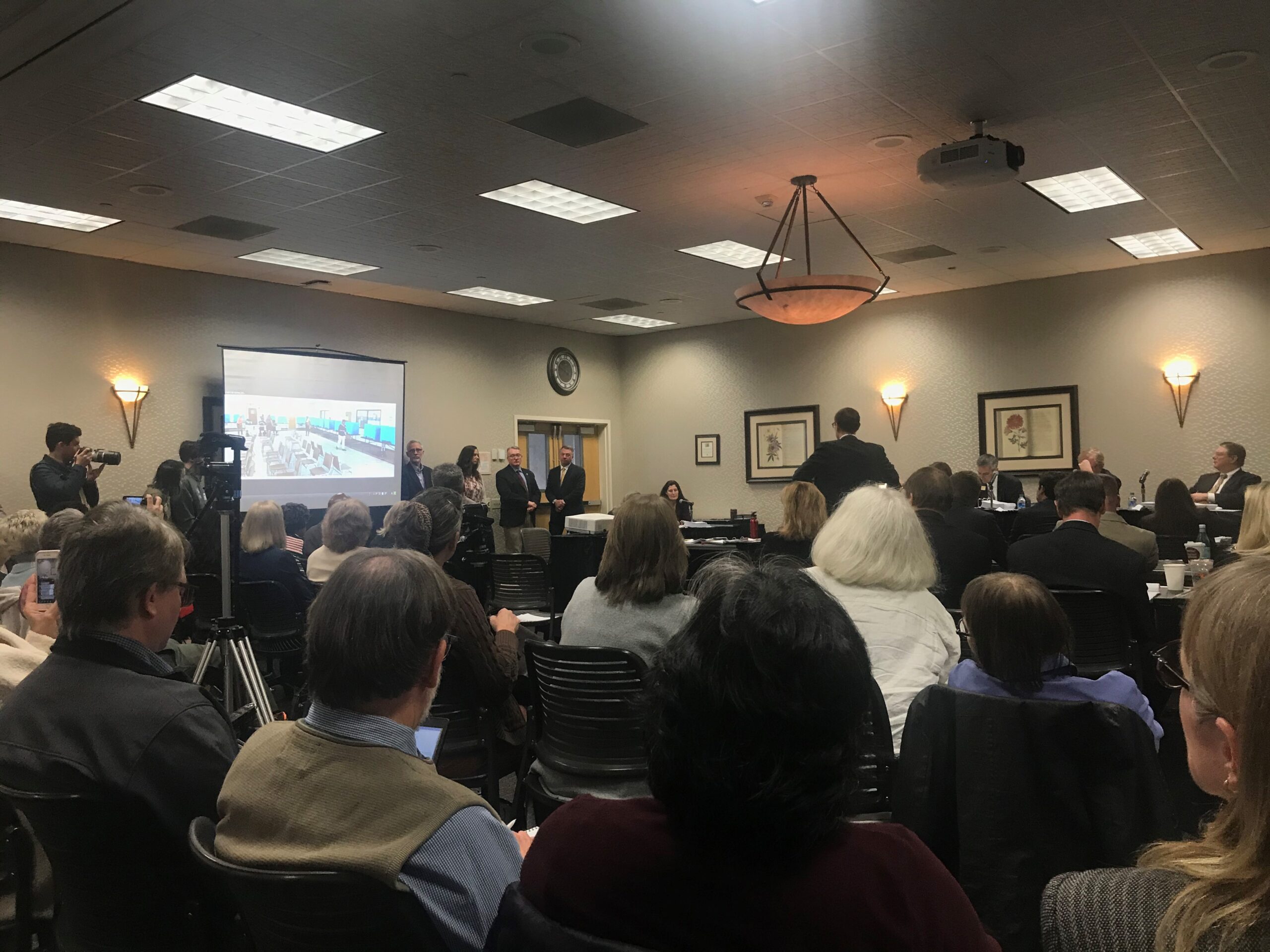The Georgia Board of Elections has voted unanimously that Athens-Clarke County violated state law when it switched to hand-marked paper ballots in the ongoing presidential primary. It ordered them to resume using the state’s new voting machines, pay $2,500 in state administrative costs, and will face a $5,000 per day fine until electronic voting machines are back in place.
The county’s Board of Elections voted last week to stop using the state’s new voting machines over concerns that the 21-inch touchscreens were too big to maintain voter privacy. The decision came two days into early voting in the state’s presidential primary. Part of their argument involves the state law requiring a certain number of voting machines for each registered voter and the challenge of finding space for that number of machines while still protecting voters’ privacy.
The state argued that the hand-marked paper ballot back up option is only meant to be used in emergency situations.
About 500 votes were cast in the county using the new touchscreens in the first two days of early voting before the board voted to change, said Athens-Clarke elections director Charlotte Sosebee. She said they received no complaints from voters about privacy during that time.
But Laura Camacho, a Clarke County resident who voted using the state’s new machines on March 2 before the county switched to hand-marked paper ballots testified Wednesday that her privacy was compromised because of the arrangement of the machines. Another voter, Anne Marie Zimeri, echoed Camacho. Both, however, acknowledged under questioning from the state’s attorney, that no one saw their ballot because there were no other voters nearby.
There’s currently just one precinct open for early voting in the county. More locations are scheduled to be added as Election Day approaches.
Lawyers representing the Athens-Clarke Board of Elections asked state elections director Chris Harvey about training and guidance that the Secretary of State’s office had provided to counties with regards to ballot privacy in the months leading up to the March primary.
Harvey says counties were given advice during conference calls and meetings about positioning the machines so that privacy could be protected. But the first time the guidance appeared in writing came in the form of a diagram shared with counties on Feb. 13. That’s before about 10 percent of counties had received their full complement of voting equipment and only two weeks before early voting began across the state.
Attorneys for the state of Georgia argued that poll workers need to be able to observe the machines to prevent tampering, while still giving voters privacy. This is best accomplished, they argue, by positioning the screens, so they face away from awaiting voters and poll workers.
The discussion about voter privacy and the new machines began in late January between the county elections board and Sosebee. Emails displayed during the hearing showed that the county was exploring the possibility of using hand-marked paper ballots as Cobb County did last November. The emails revealed concern not only about privacy but also about having enough electricity to power the new voting equipment, which now includes the touchscreen, poll pad, ballot printer and scanner.
Athens-Clarke Board of Elections chair Jesse Evans testified that the board requested floorplans for early voting locations in an email on January 30. Evans said he and the board wanted to find a way to use the new machines, but only if voter privacy was protected. Evans said he was assured by the county’s election staff that there were no privacy issues at early voting sites.
He showed up a polling place on March 2 and said he was able to stand in an adjacent office and clearly see the voting screens through a window and while walking past voting stations. He described that as a violation of voter privacy.
“We need to stop it from happening here and in other locations,” Evans said.
On March 3, Sosebee told the board that room layouts were possible to protect voter privacy. But the board still voted to switch to hand-marked paper ballots.
Secretary of State Brad Raffensperger presided over the hearing in his role as chairman of the Board of Elections as lawyers who work closely with Raffensperger in the Secretary of State’s office were arguing the state’s side in the hearing.









